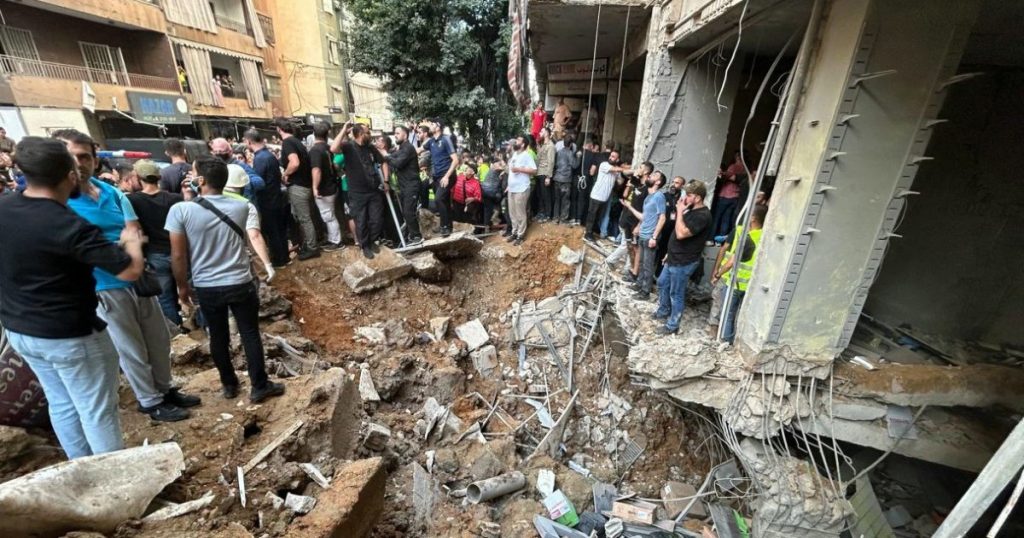Hezbollah suffered a devastating blow when an Israeli airstrike killed two of its senior figures, Ibrahim Akil and Ahmed Wahbi, along with dozens of others in a densely populated suburb of Beirut. The strike resulted in the deaths of at least 31 people, including three children, and left many others injured. Prior to this attack, Hezbollah’s communication devices were targeted, further escalating tensions in the region. While Israel has not officially claimed responsibility for the attacks, Hezbollah has accused Israel of being behind the explosions. The United States had been offering a reward for information on Akil, who was considered a key member of the group responsible for the 1983 bombing of the U.S. embassy in Beirut.
Following the deadly airstrikes, Hezbollah confirmed the deaths of 19 of its fighters, including Akil and Wahbi. The group did not specify if all of the fighters were killed in the strike, but it marked a significant loss for the organization. The recent attacks add to the already high number of Hezbollah fighters killed in cross-border clashes since the Hamas-led terror attacks in October. Lebanese Foreign Minister Abdallah Bouhabib condemned the attacks at the United Nations Security Council, describing them as unprecedented and calling for an end to Israeli aggression. In response, Israel’s Ambassador to the UN, Danny Danon, criticized Lebanon for allowing Hezbollah, a terrorist organization, to operate within its borders and urged the country to take action to restrain the group.
The airstrikes and targeted attacks on Hezbollah members have heightened fears of all-out war in the Middle East. The region has been plagued by ongoing conflicts and tensions between various factions, with the recent attacks adding to the instability. The escalation of violence threatens to further destabilize the already volatile situation in the region and has prompted concerns about the potential for a full-scale war. Both Israel and Hezbollah have been engaged in a series of clashes and confrontations, with each side accusing the other of provoking and escalating the situation. The international community has expressed concern over the growing tensions and violence in the region, with calls for de-escalation and efforts to prevent further bloodshed.
The deadly attacks on Hezbollah members and the civilian casualties resulting from the airstrikes have raised questions about the ethics and legality of such actions in a conflict. The targeting of individuals associated with armed groups can have significant consequences, not only for the immediate victims but also for the broader implications on the conflict. International humanitarian law and human rights principles are often called into question in situations where civilians are caught in the crossfire of armed conflicts. The use of airstrikes and targeted attacks on specific individuals can lead to civilian casualties and have a devastating impact on communities, further fueling resentment and perpetuating cycles of violence.
The situation in the Middle East remains highly volatile and unpredictable, with the potential for further escalation of violence and conflict. The recent attacks on Hezbollah members and the subsequent airstrikes have intensified tensions in the region, raising concerns about the possibility of a full-scale war. The international community continues to monitor the situation closely and call for restraint and de-escalation by all parties involved. Efforts to find peaceful solutions and address the root causes of the conflict are crucial to preventing further bloodshed and promoting stability in the region. The need for diplomatic engagement and dialogue to resolve the underlying issues and address the grievances of all parties remains paramount in achieving lasting peace and security in the Middle East.


